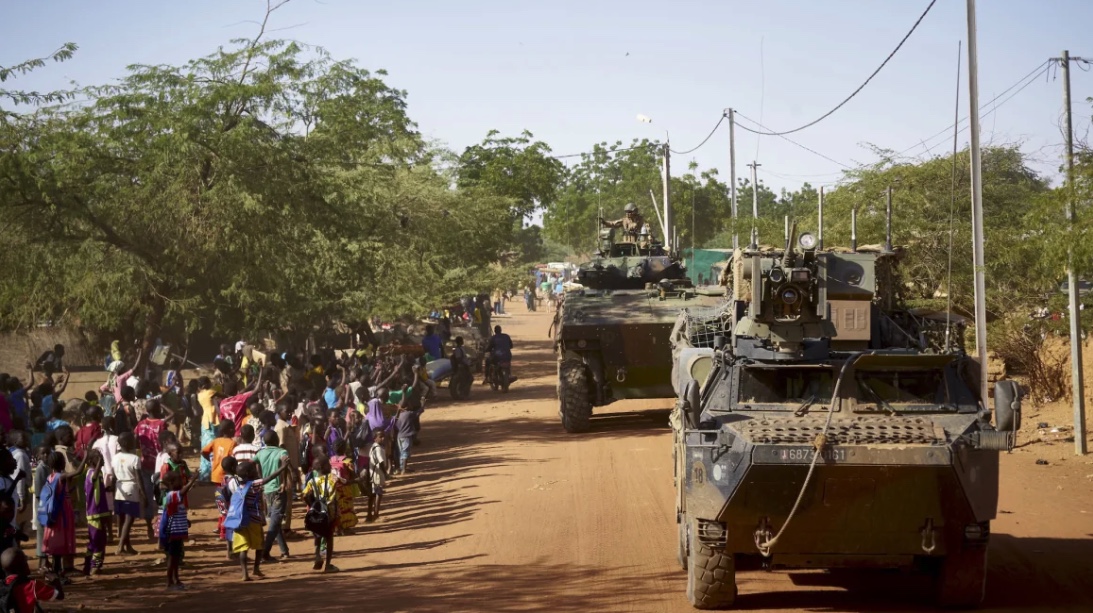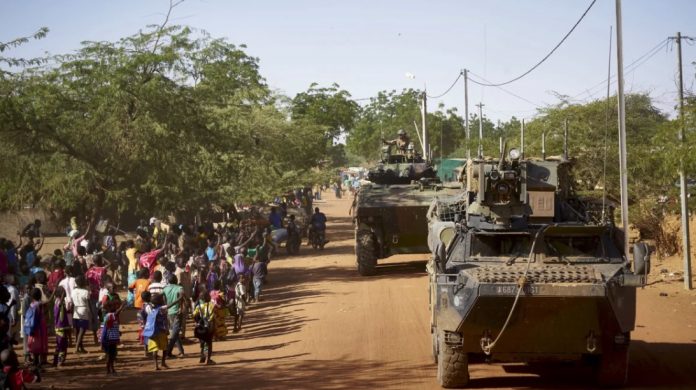บูร์กินาฟาโซได้รับเลือกให้เป็นวิกฤตการณ์ผู้พลัดถิ่นที่ถูกละเลยมากที่สุดในโลกเป็นปีที่สองติดต่อกันโดยสภาผู้ลี้ภัยนอร์เวย์ Norwegian Refugee Council (NRC) ประเทศในแอฟริกาตะวันตกแห่งนี้มีผู้พลัดถิ่นใหม่สูงสุดเป็นประวัติการณ์ที่ 707,000 คนในปี 2566 เนื่องจากความรุนแรงที่ทวีความรุนแรงขึ้นและวิกฤตด้านมนุษยธรรมที่เลวร้ายลง เก้าในสิบอันดับแรกของวิกฤตการณ์ที่ถูกละเลยที่ระบุไว้ในรายงานอยู่ในแอฟริกา โดยแคเมอรูน สาธารณรัฐอัฟริกากลาง มาลี และไนเจอร์ อยู่ในอันดับที่สองถึงห้าตามลำดับ NRC อ้างถึงเงินทุนด้านมนุษยธรรมที่ไม่เพียงพอ การรายงานข่าวของสื่อที่จำกัด และการขาดความคิดริเริ่มทางการเมืองระหว่างประเทศ เป็นเกณฑ์สำหรับวิกฤตการณ์การพลัดถิ่นที่ถูกละเลย ซึ่งรุนแรงขึ้นจากการขาดแคลนความช่วยเหลือที่ทำลายสถิติมูลค่า 32,000 ล้านดอลลาร์ในปี 2566
รายงานระบุการรายงานข่าวของสื่อเพียงเล็กน้อยและการมีส่วนร่วมทางการเมืองระหว่างประเทศในวิกฤตการพลัดถิ่นของบูร์กินาฟาโซในปี 2566 โดยมีเพียง 37% ของเงินทุนด้านมนุษยธรรมที่ร้องขอเท่านั้นที่ได้รับ การเข้าถึงสื่อลดลงเนื่องจากปัญหาที่เพิ่มขึ้นสำหรับนักข่าวและองค์กรช่วยเหลือ บูร์กินาฟาโซภายใต้การปกครองของทหารนับตั้งแต่รัฐประหารปี 2565 ให้ความสำคัญกับความปลอดภัยท่ามกลางการโจมตี อย่างไรก็ตาม รายงานของ Human Rights Watch เมื่อเดือนเมษายนกล่าวหาว่าทหารมีพลเรือนเสียชีวิต โดยบูร์กินาฟาโซข้องแวะ ประเทศนี้ระงับการแพร่ภาพกระจายเสียงและการเข้าถึงเว็บไซต์สำหรับสำนักข่าวตะวันตกบางแห่งเพื่อเป็นการตอบสนอง สาธารณรัฐประชาธิปไตยคองโก (DRC) ยังคงเป็นวิกฤตการณ์ที่ถูกละเลยมากที่สุด โดยมีผู้พลัดถิ่นราว 6.9 ล้านคน ส่วนใหญ่อยู่ในจังหวัดทางตะวันออก ซูดานยังต้องเผชิญกับการละเลย แม้ว่าสงครามร้ายแรงจะส่งผลให้มีผู้เสียชีวิตจำนวนมากและผู้คนหลายล้านคนต้องการความช่วยเหลือ
การเสียชีวิตที่เกี่ยวข้องกับความรุนแรงเพิ่มขึ้นสองเท่าในบูร์กินาฟาโซในปี 2566 โดยการโจมตีซ้ำๆ มีสาเหตุมาจาก “ผู้ก่อการร้าย” Médecins Sans Frontières (MSF) ระงับการดำเนินงานหลังจากเจ้าหน้าที่บรรเทาทุกข์สองคนถูกสังหารในเดือนกุมภาพันธ์ ภายในสิ้นปีนี้ ผู้คนมากถึง 2 ล้านคนติดอยู่ในเมืองที่ถูกปิดล้อม 36 เมือง โดยกว่า 40,000 คนเผชิญกับความไม่มั่นคงทางอาหารขั้นรุนแรง แอสสตา มารดาผู้พลัดถิ่น เล่าถึงความยากลำบากของเธอ รวมถึงการต้มใบไม้เพื่อเป็นอาหารเนื่องจากขาดแคลน Egeland เน้นย้ำถึงความท้าทายในการเข้าถึงผู้ที่ต้องการท่ามกลางถนนอันตรายและบริการทางอากาศที่มีราคาแพง NRC ประมาณการว่าในปี 2567 ผู้คนจำนวน 6.3 ล้านคนจะต้องได้รับความช่วยเหลือด้านมนุษยธรรม โดยมีผู้พลัดถิ่นภายในประเทศมากกว่า 2 ล้านคน การโจมตีเมื่อเร็วๆ นี้คร่าชีวิตพลเรือนไปหลายร้อยชีวิต ส่งผลให้วิกฤตรุนแรงยิ่งขึ้น NRC เน้นย้ำถึงความเชื่อมโยงกันของวิกฤตการณ์ที่ถูกละเลย ก่อให้เกิดผลกระทบข้ามพรมแดน และนำไปสู่ความตึงเครียดในระดับภูมิภาคจากการแข่งขันด้านทรัพยากร
For the second consecutive year, Burkina Faso has been designated as the most neglected crisis.

Burkina Faso has been named the world’s most neglected displacement crisis for the second year in a row by the Norwegian Refugee Council (NRC). The West African country saw a record-high of 707,000 new displacements in 2023 due to escalating violence and a worsening humanitarian crisis. Nine of the top ten neglected crises outlined in the report were in Africa, with Cameroon, the Central African Republic, Mali, and Niger ranking second to fifth, respectively. The NRC cited insufficient humanitarian funding, limited media coverage, and a lack of international political initiatives as criteria for neglected displacement crises, exacerbated by a record-breaking $32 billion aid shortfall in 2023.
The report noted minimal media coverage and international political engagement in Burkina Faso’s displacement crisis in 2023, with only 37% of requested humanitarian funding received. Media access declined due to growing difficulties for journalists and aid organisations. Burkina Faso, under military rule since a 2022 coup, prioritises security amid attacks. However, a Human Rights Watch report in April accused the military of civilian deaths, refuted by Burkina Faso. The country suspended broadcasting and website access for select Western news outlets in response. The Democratic Republic of Congo (DRC) remained among the most neglected crises, with around 6.9 million people displaced, mainly in eastern provinces. Sudan also faced neglect, despite a deadly war resulting in numerous deaths and millions needing aid.
Violence-related deaths doubled in Burkina Faso in 2023, with recurrent attacks attributed to “terrorists.” Médecins Sans Frontières (MSF) suspended operations after two aid workers were murdered in February. By year-end, up to two million people were trapped in 36 blockaded towns, with over 40,000 facing severe food insecurity. Asseta, a displaced mother, described her struggles, including boiling leaves for food due to scarcity. Egeland highlighted challenges in reaching those in need amid dangerous roads and costly air services. The NRC estimates that 6.3 million people will require humanitarian aid in 2024, with over two million internally displaced. Recent attacks claimed hundreds of civilian lives, exacerbating the crisis. The NRC emphasised the interconnectedness of neglected crises, causing ripple effects across borders and leading to regional tensions over resource competition.
By CNN NEWS

















